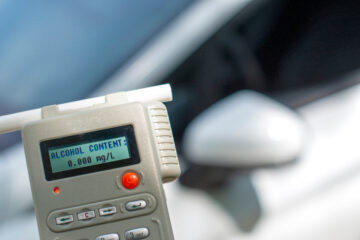A breathalyzer is a tool used by police to test the blood-alcohol content (BAC) of someone suspected of drunk driving. While they are a commonly-used tool, they are not perfectly accurate (being administered incorrectly, or being improperly calibrated, are just two reasons why they might not perform accurately).
Because of this, we recommend that you refuse to submit to a breathalyze and/or blood testing if you have consumed any alcohol and/or drugs. However, there are things you should know about what refusing a breath test entails:
- Like many states, New Hampshire is an “implied consent” state. This means that when you accept a license and drive in the state, you are considered to have tacitly consented to be tested for driving while intoxicated. This means that you may receive an automatic administrative license suspension (ALS) by the Department of Motor Vehicles.
- If you refuse the breathalyzer, you will be brought to the nearest police station. At the police station, a breath test, blood test, or both can be requested by the police officer. A refusal results in a 180-day license suspension, effective 30 days after arrest. You can request a hearing within 30 days to contest the suspension. If you don’t request a hearing within 30 days, the suspension will automatically remain in effect.
If the hearing examiner upholds the automatic 180-day suspension, it will be run in addition to any court-imposed driving suspension. If you submit to a test, and the suspension is upheld, it will run at the same time as any court-imposed suspension. - Both testing equipment and the test operator have specific standards and qualifications in order for the test to be deemed accurate. If you do submit to a breath test, you have the right to confirm those certifications, and to have a breath sample be validated by an independent facility.
- Chemical tests are often the best source of evidence to prove impairment. If you have been drinking, and are impaired, refusing chemical testing is generally advantageous. If you have not been drinking or consuming drugs, it is recommended to submit to the testing to avoid an administrative suspension.
Have you been arrested for a DWI in New Hampshire? Bernstein & Mello can help! Contact us to learn more!



